The FIFA Club World Cup 2025, in its revamped format, has delivered a compelling narrative as it progresses towards the Round of 16. With an expanded field of teams, a redesigned trophy, multiple host cities, and the introduction of innovative referee technology, this edition mirrors the scale and excitement of the quadrennial World Cup.
Organizers have framed the tournament as "a celebration of hope, excellence, and pride," uniting clubs, players, and fans through their shared passion for the sport. The inclusion of debutant teams and the extended month-long duration have elevated the competition's significance.
Featuring representatives from all six confederations – 12 from Europe, 6 from South America, 4 each from Africa, Asia, and North/Central America and the Caribbean, 1 from Oceania, and the host nation – the 2025 lineup showcases global diversity.
With the group stage concluded and the final 16 teams determined, the tournament has already witnessed its share of unexpected results, David-vs-Goliath clashes, and moments of intense rivalry.

Auckland City, ranked 4,971st in the Opta Power Rankings, entered the Club World Cup as the lowest-ranked team. Placed in a group with Bayern Munich, Benfica, and Boca Juniors, their chances appeared slim. The team is comprised of amateur players competing in New Zealand's Northern League, a competition with just 12 teams.
Auckland City endured a 0-10 defeat against Bayern Munich, the tournament's most lopsided result, followed by a 0-6 loss to Benfica.
Facing Argentinian powerhouse Boca Juniors in their final match, Auckland City defied expectations. The underdogs, with a ranking difference of 4,819 points, secured a 1-1 draw, denying Boca Juniors a place in the Round of 16.
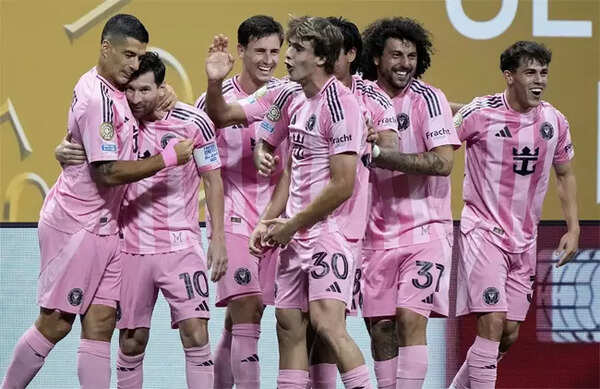
Drawn into a group with Porto, Al Ahly, and Palmeiras, Lionel Messi's Inter Miami defied predictions by advancing to the Round of 16, finishing second in Group A. Led by Messi, and supported by Luis Suarez, Jordi Alba, and Sergio Busquets, the team secured their spot with a combination of resilience and brilliance.
While Inter Miami secured only one victory, it proved sufficient for qualification. Following a draw against Al Ahly, they faced Porto. Messi's brilliance, highlighted by a remarkable free-kick goal, propelled Inter Miami to a 2-1 victory. A 2-2 draw against Palmeiras sealed their place in the next round.
The final matchday in Group E saw tensions escalate, as River Plate's Marcos Acuna and Inter's Denzel Dumfries nearly came to blows, requiring intervention from teammates and staff. The animosity stemmed from a previous encounter three years ago.
Extreme heat presented significant challenges, with teams employing ice baths and cold towels to cool down players. Borussia Dortmund took the precaution of having substitutes watch their game from the locker room to shield them from the heat. Thunderstorms caused delays to several matches.
With the 2026 FIFA World Cup, co-hosted by the United States, Mexico, and Canada, less than a year away, the Club World Cup has highlighted potential issues, ranging from pitch quality to weather conditions.
Real Madrid's Jude Bellingham criticized the poor pitch conditions, stating, "The pitches aren’t great here. The pitches aren’t great at all."
Despite the presence of underdog stories and unexpected results, the Club World Cup still favors Europe's elite clubs. Real Madrid and Manchester City remain among the frontrunners to win the tournament. Several teams, including Seattle Sounders, Urawa Reds, Ulsan, Wydad AC, and Pachuca, were eliminated without earning a single point.
Here is a list of the teams that have qualified for the Round of 16:
Newer articles
Older articles
 SA20 Teams Given Six Retention Options Ahead of Season 4 Auction
SA20 Teams Given Six Retention Options Ahead of Season 4 Auction
 Gavaskar Calls for Kuldeep Yadav's Inclusion in Second Test Amid Bumrah Fitness Concerns
Gavaskar Calls for Kuldeep Yadav's Inclusion in Second Test Amid Bumrah Fitness Concerns
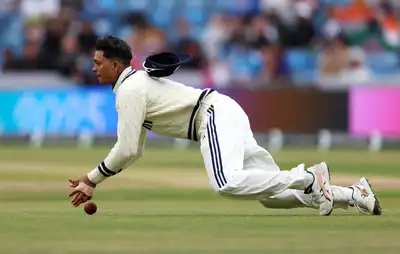 Former Selector Blasts India's Fielding Errors After Test Defeat to England
Former Selector Blasts India's Fielding Errors After Test Defeat to England
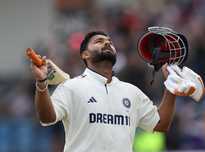 Rishabh Pant is 'Reinventing' Cricket, Says Greg Chappell, Following Heroic Test Display
Rishabh Pant is 'Reinventing' Cricket, Says Greg Chappell, Following Heroic Test Display
 5 Daily Practices That Radiate Confidence
5 Daily Practices That Radiate Confidence
 Test Your Focus: Spot the Hidden Word in This Optical Illusion Challenge
Test Your Focus: Spot the Hidden Word in This Optical Illusion Challenge
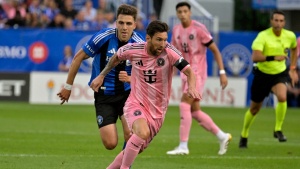 Messi, 38, Recreates "Ankara Messi" Magic with Stunning Solo Goal for Inter Miami
Messi, 38, Recreates "Ankara Messi" Magic with Stunning Solo Goal for Inter Miami
 Expert Dismisses Claim That Eating Fruit on Empty Stomach Raises Diabetes Risk
Expert Dismisses Claim That Eating Fruit on Empty Stomach Raises Diabetes Risk
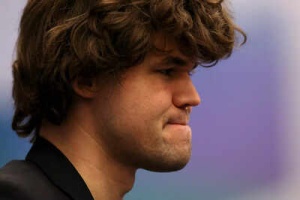 Nine-Year-Old Indian Chess Prodigy Holds Magnus Carlsen to Draw in Online Tournament
Nine-Year-Old Indian Chess Prodigy Holds Magnus Carlsen to Draw in Online Tournament
 Mirabai Chanu Reveals Relentless Demands of Weightlifting: Training, Weight Control Consume Mind Even During Family Time
Mirabai Chanu Reveals Relentless Demands of Weightlifting: Training, Weight Control Consume Mind Even During Family Time